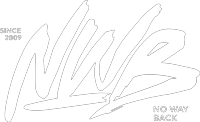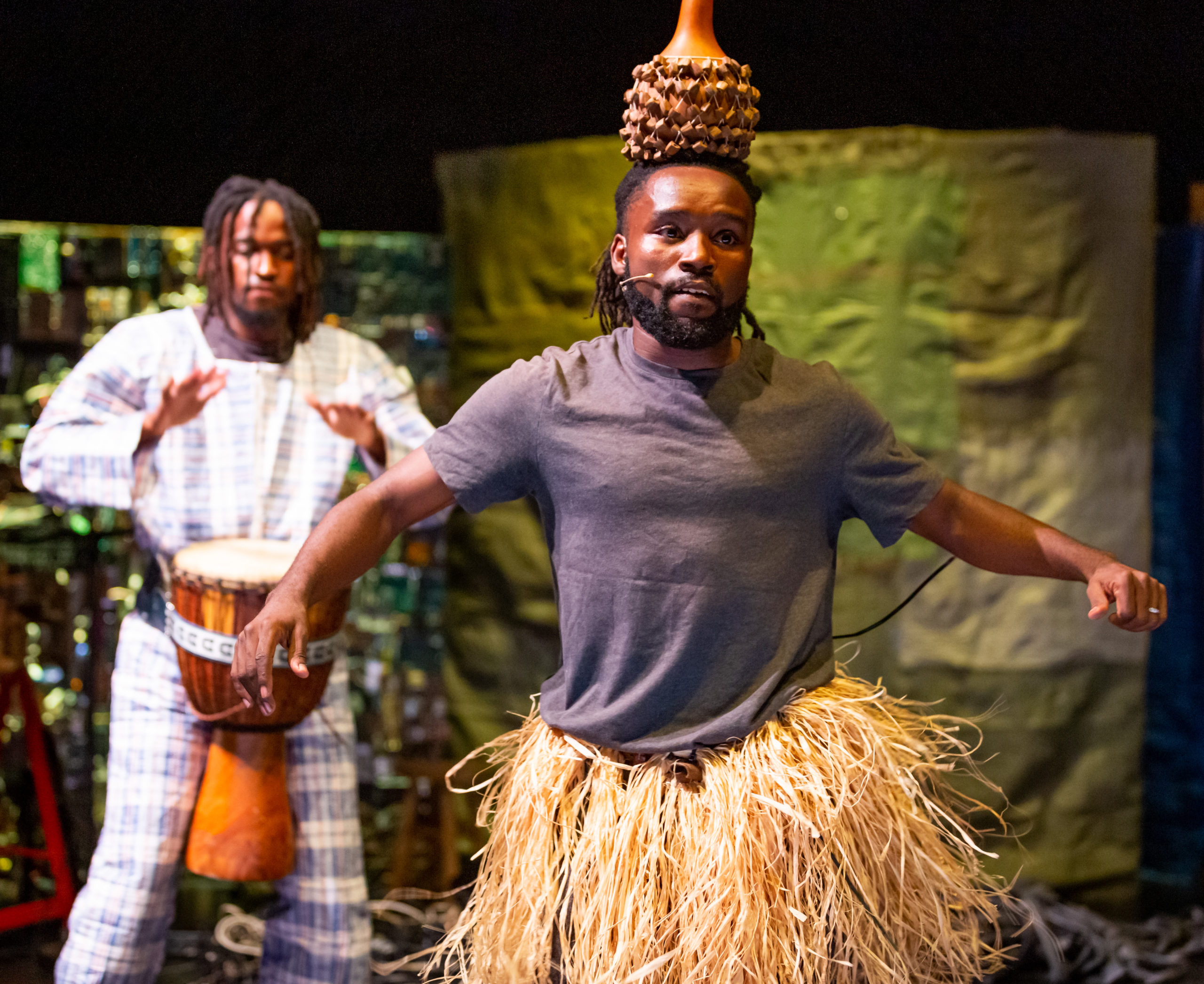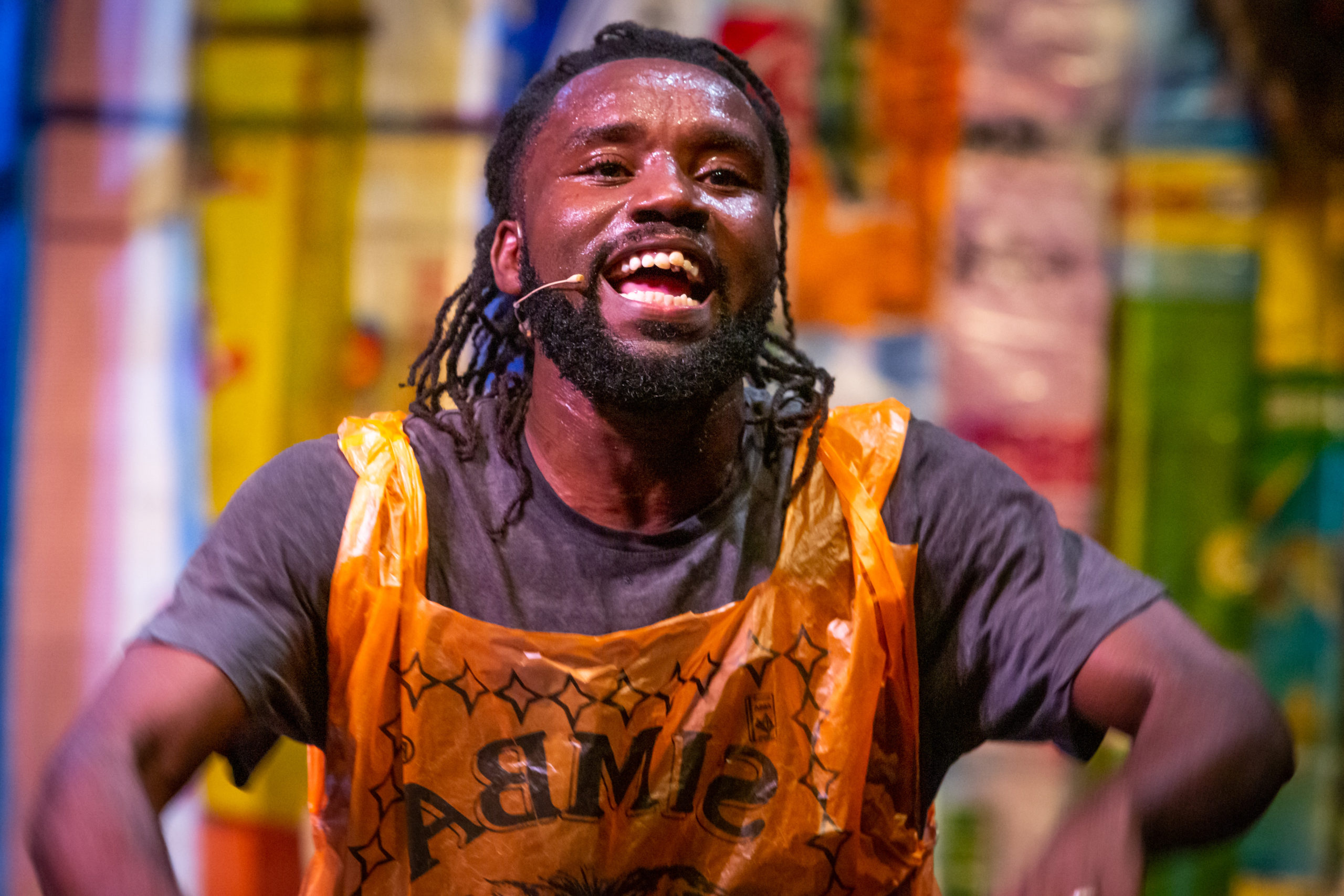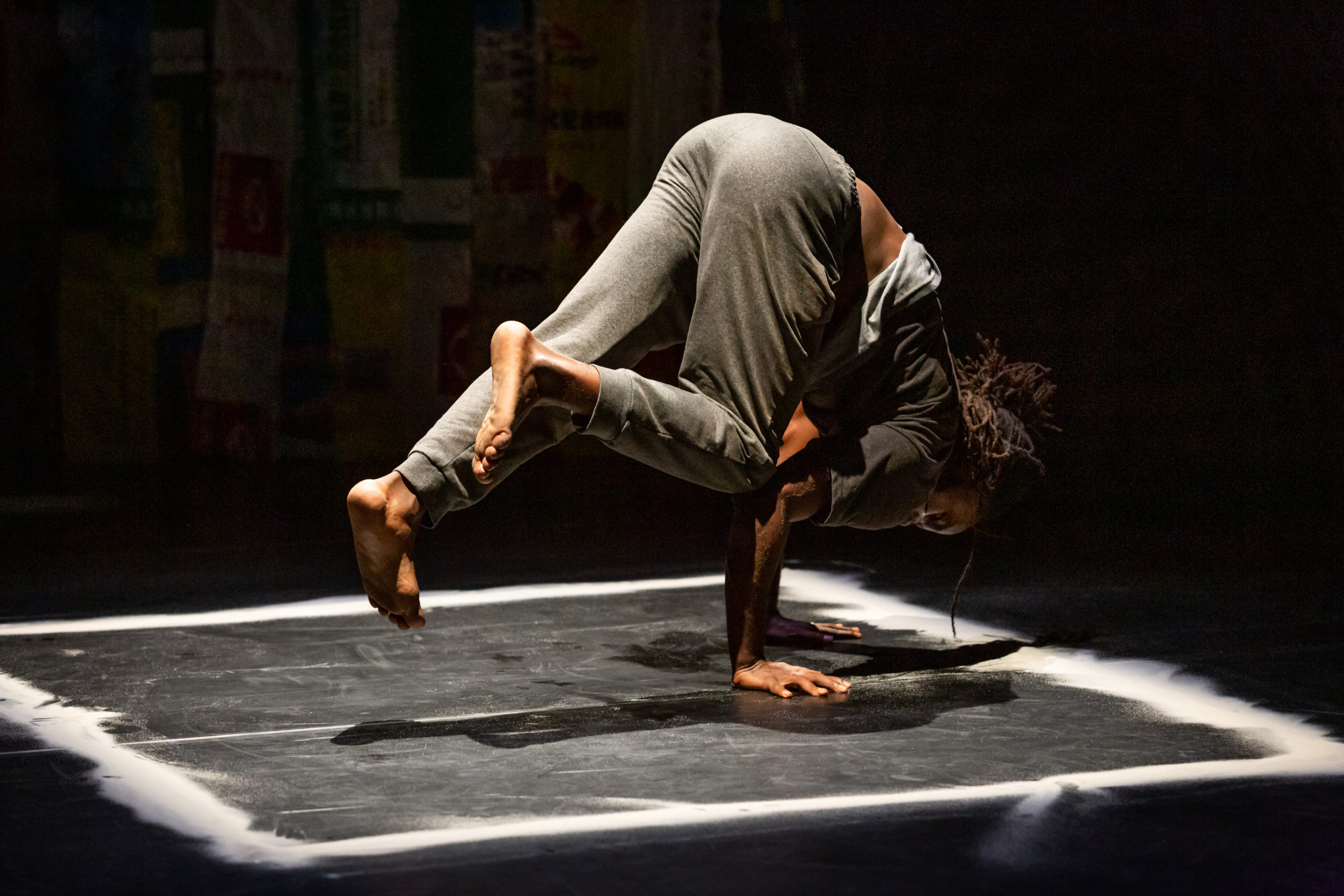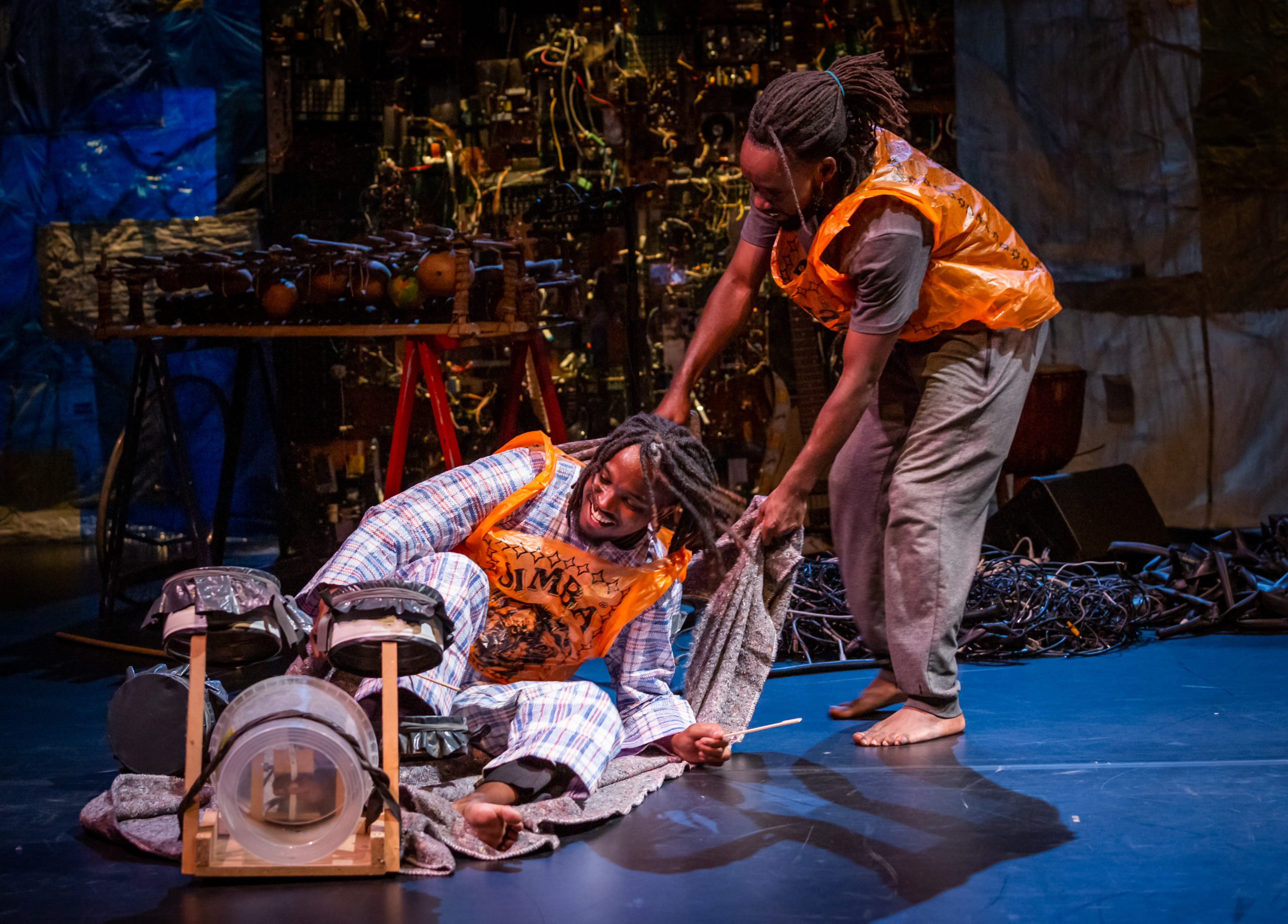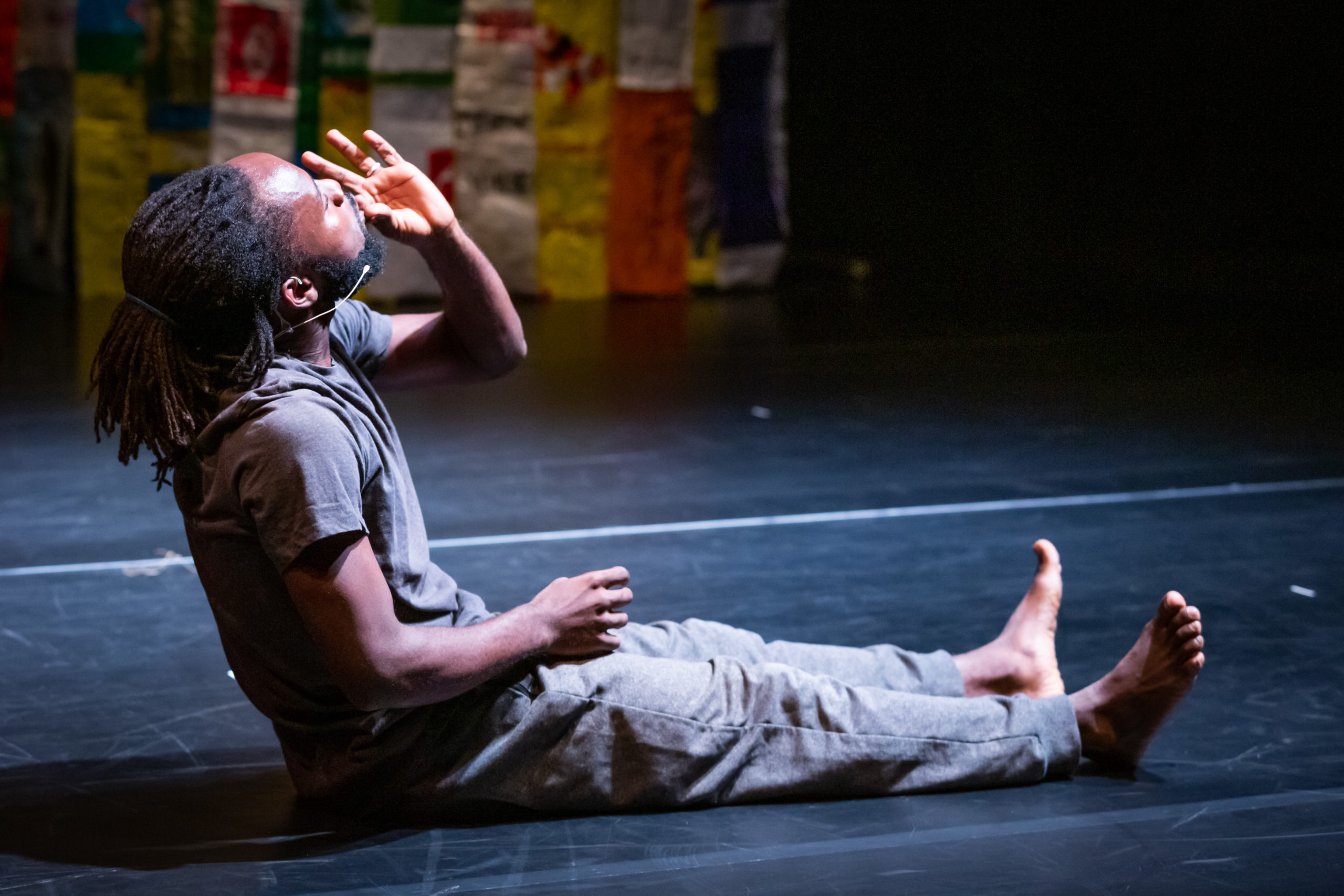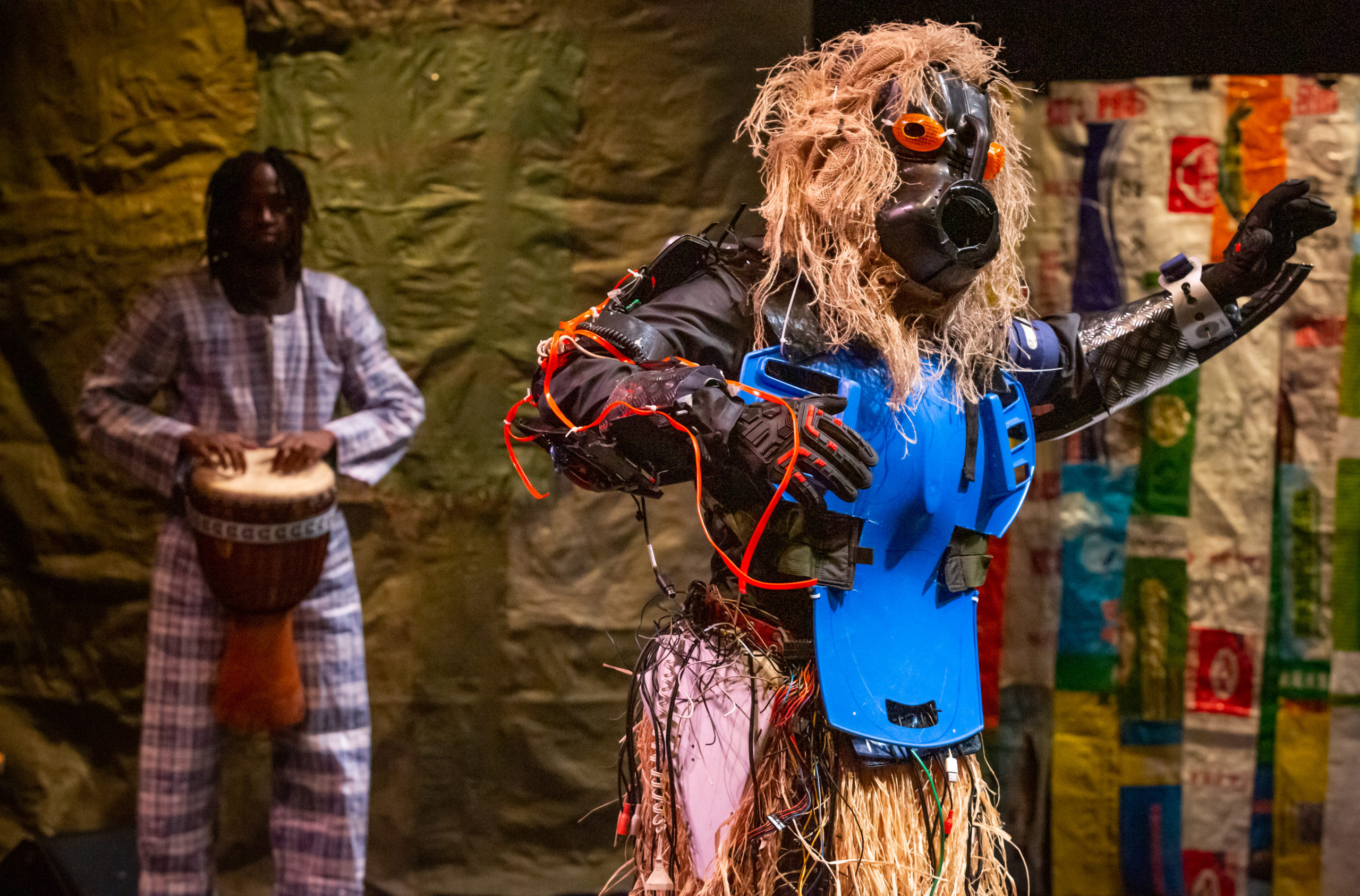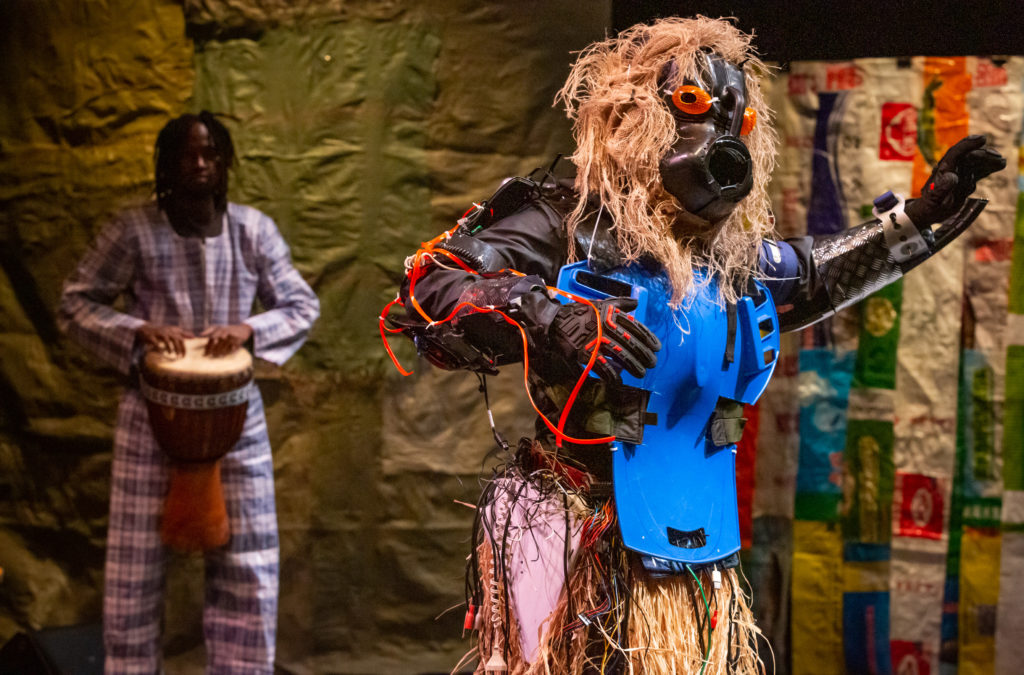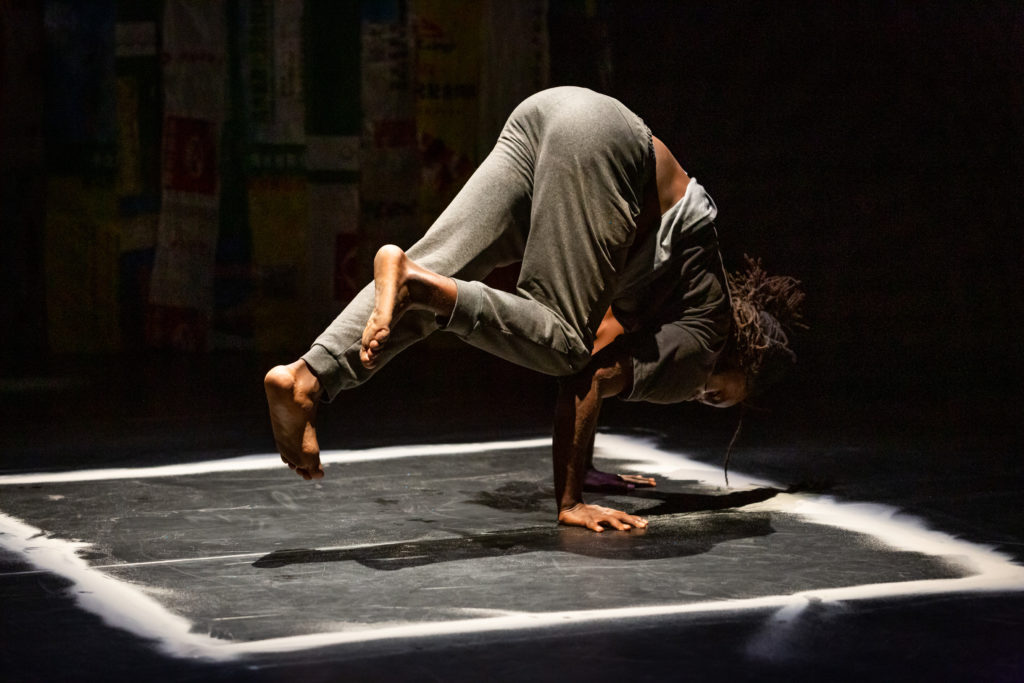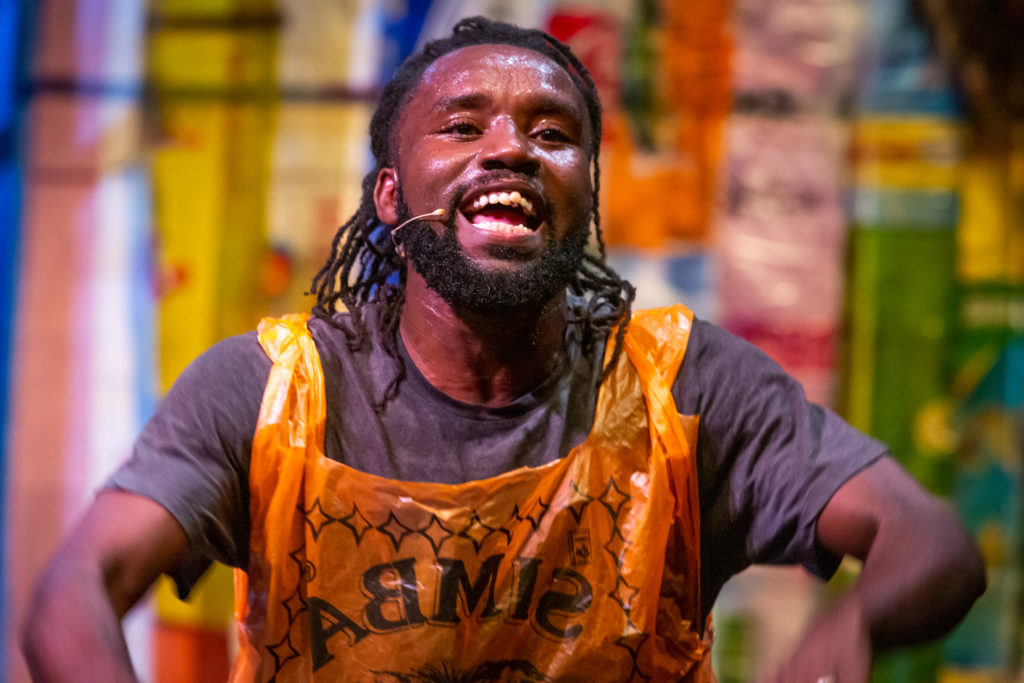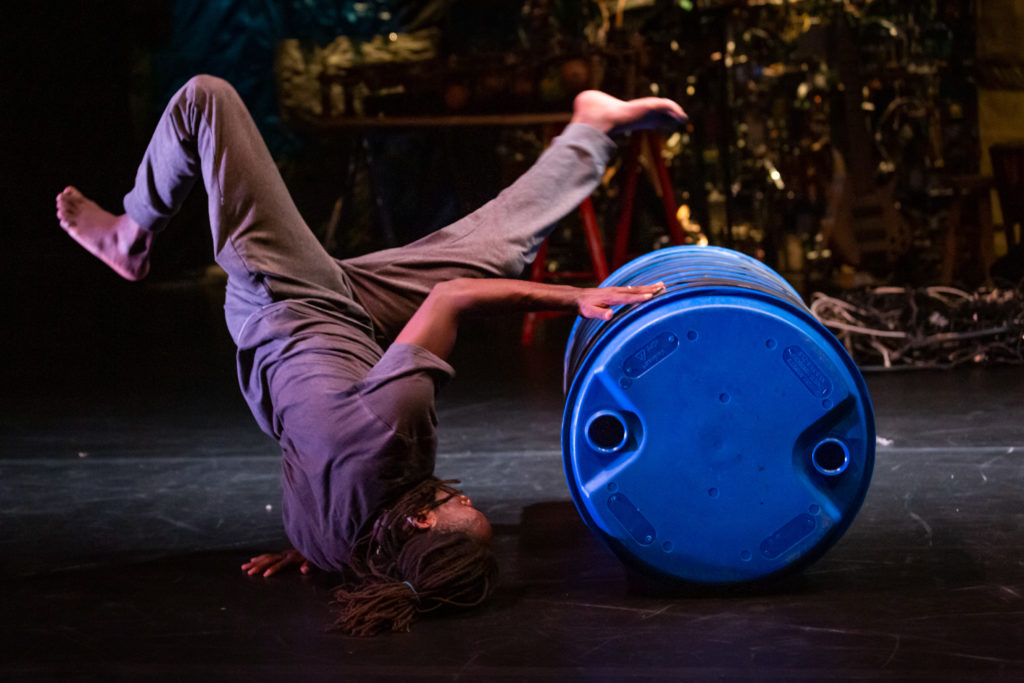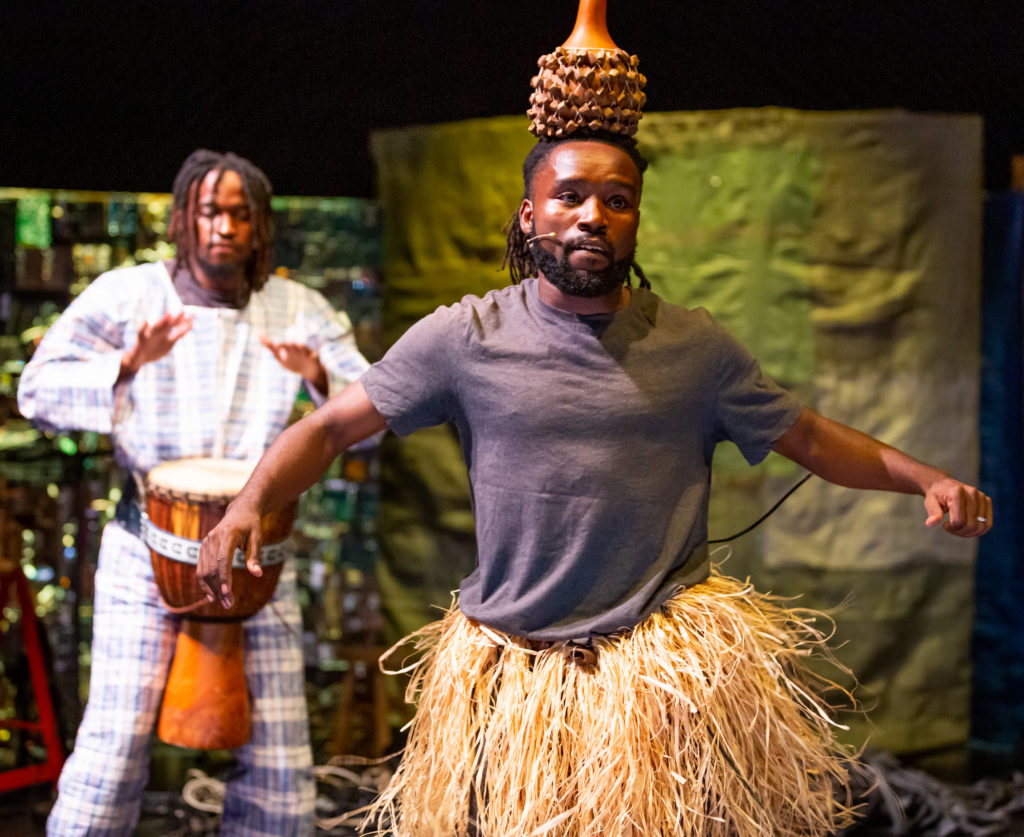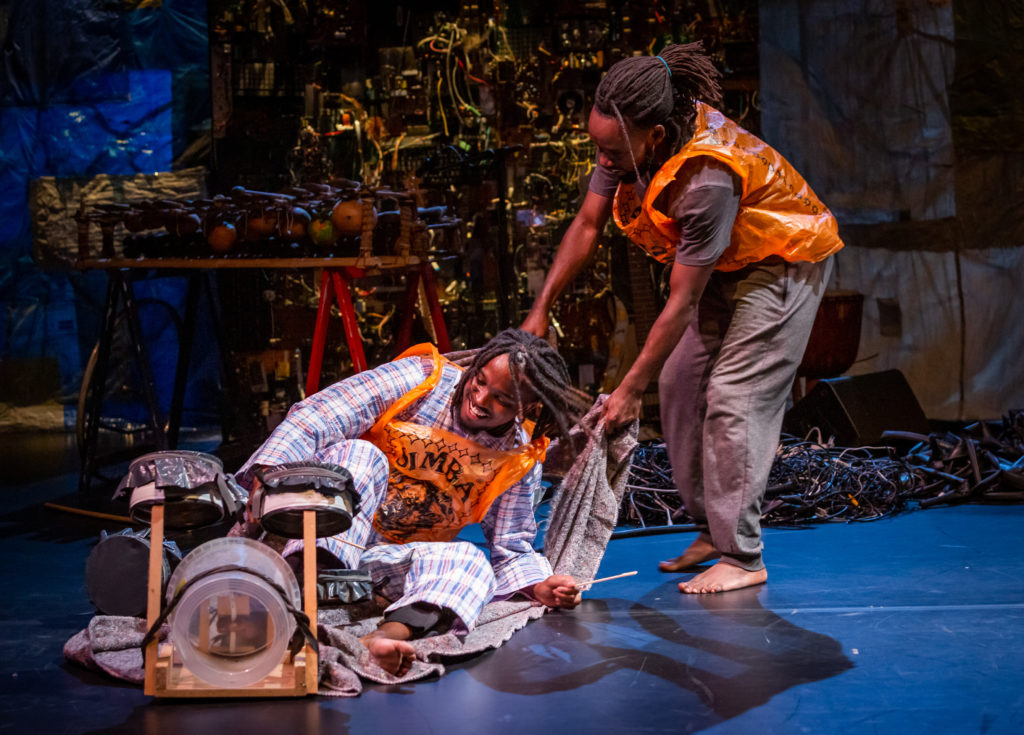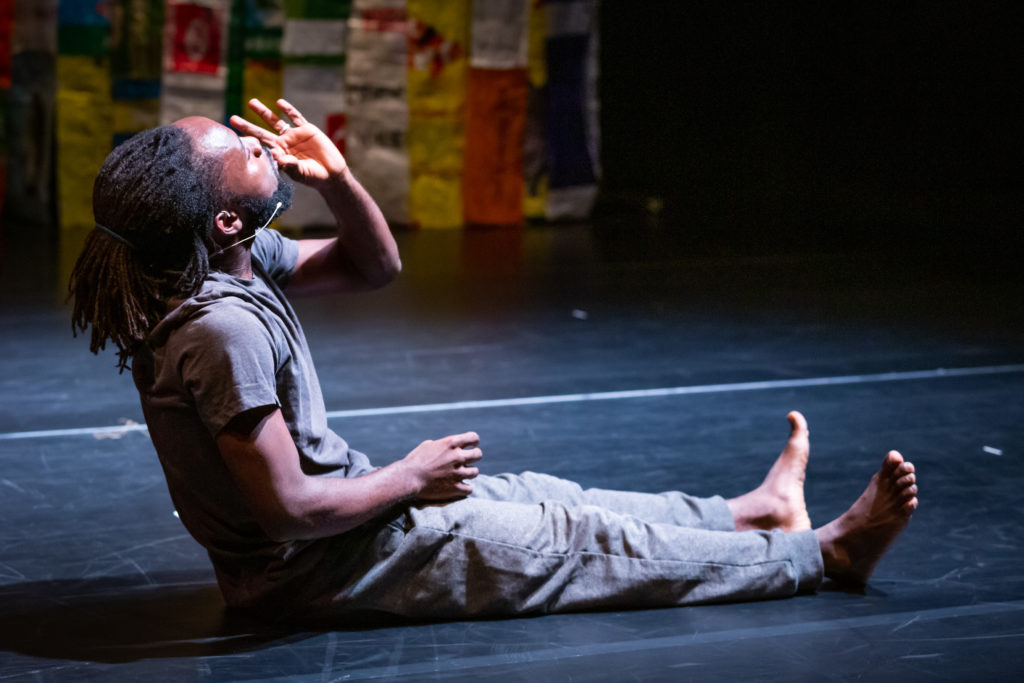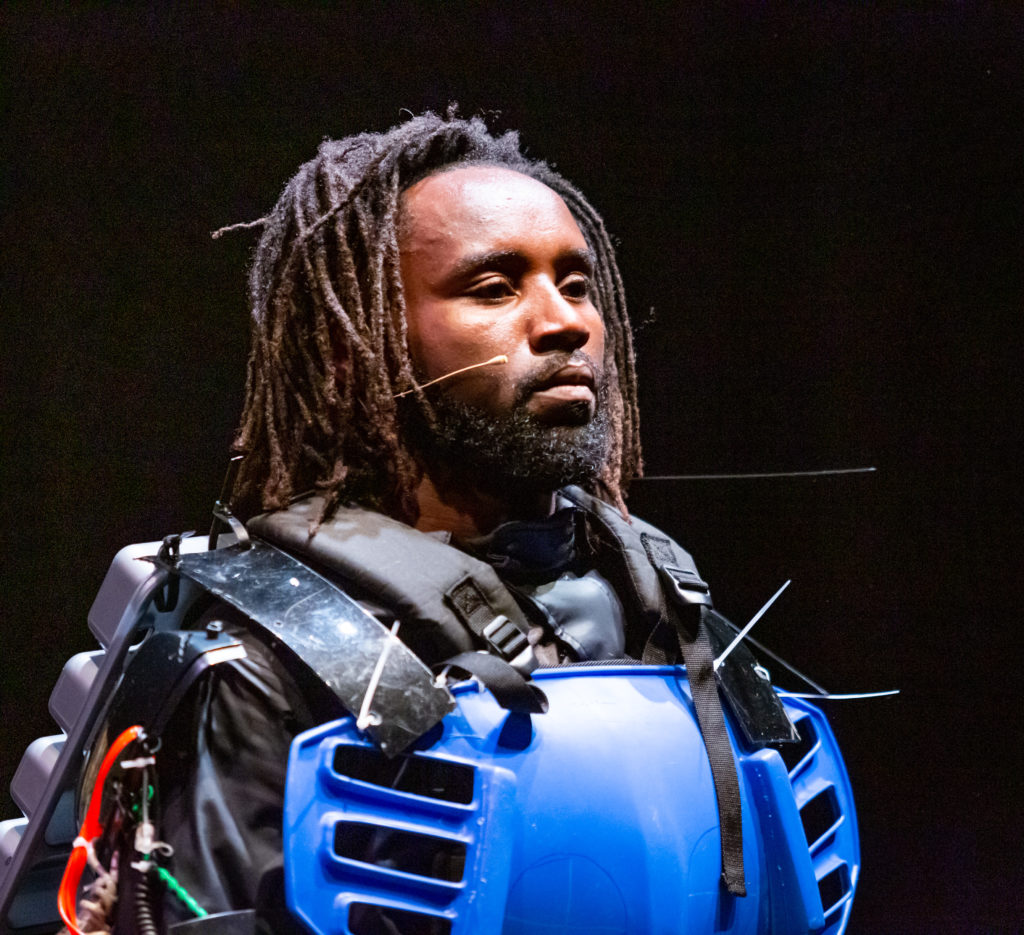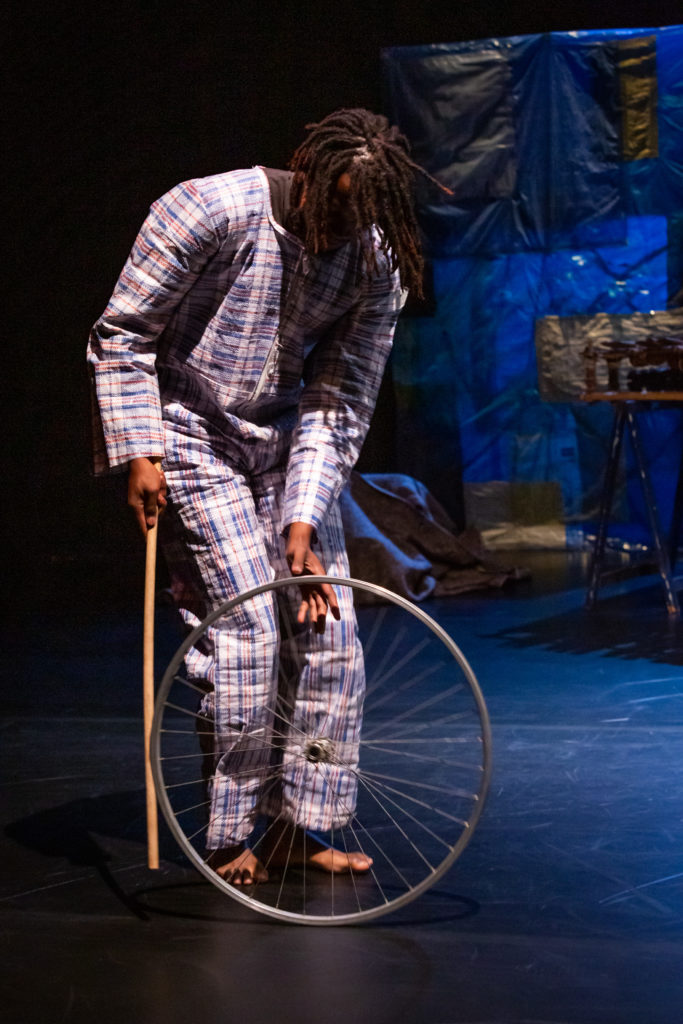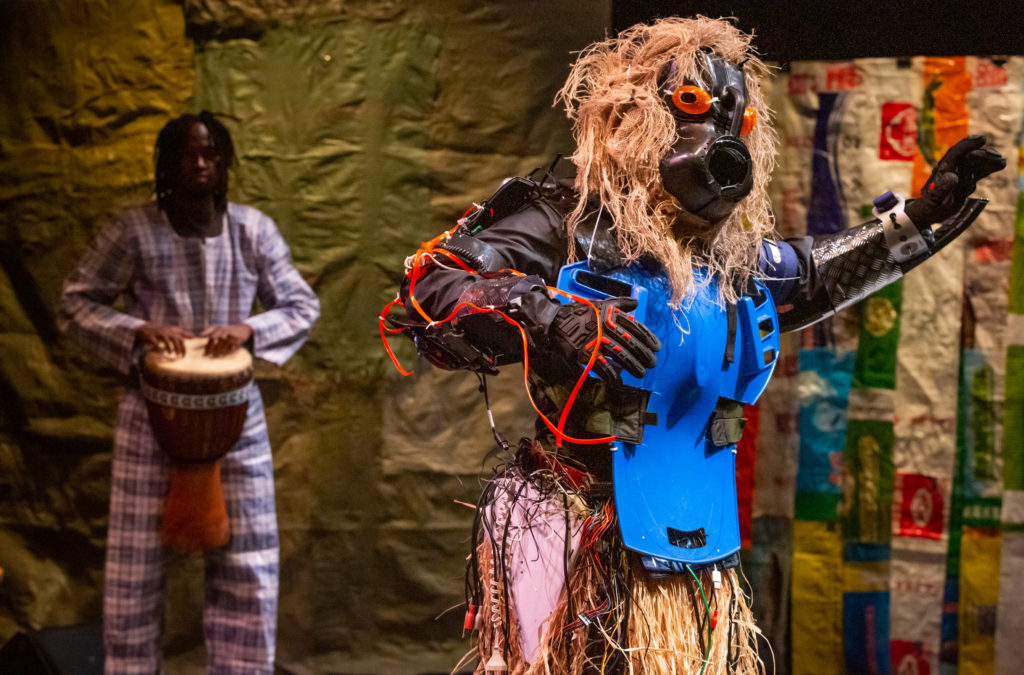La Cage
Originally from Goma, DRC, Faraja Batumike has been dancing (hip hop, house, break, ndombolo) since 2007.
Winner of several local contests and also working internationally as a trainer and choreographer, in 2017 he founded the Goma Dance Festival, an annual meeting of urban, contemporary and traditional dance.
His native Congo, a land of wealth but also of terrible violence, is part of the solo of which he presented a first version at the Detours Festival of the Cie No Way Back, in 2021 in Brussels. La Cage tells the story of a young man who wants to realize his dream despite a complex environment.
Mixing hip hop and words, the piece also shows "that we create cages for ourselves, that we imprison ourselves in our limiting thoughts". Today, Faraja confides, "Goma is no longer a cage for me.
From and by : Faraja Batumike
Artistic Direction, Stage Direction : Milan Emmanuel
Music creation : Patient Ramazani
Installation, Costumes : Precy Numbi
Scenography, Light creation : Peter Maschke
External look : Juan Bernardo Martinez
—Production : Cie No Way Back
Coproduction : Charleroi danse
Partners : Grand studio
Faraja Batumike : Author-interpreter
FARAJA was born in Goma in the east of the DRC. Since 2007, he practices hip-hop, house, break, and ndombolo dance. He won multiple dance competitions in the East African region.
In 2020 he received the Lokumu Dance Award. He participates in several major international competitions such as: Summer Dance Forever (Amsterdam), Detours Festival, Timiss Festival and Urban Life Festival (Brussels), Flavourama Battle (Vienna). He teaches Afro urban dances in Goma and internationally.
Faraja's choreographies have been presented in different countries including : France, Belgium, Tunisia, Egypt, USA, Rwanda, Uganda, and Kenya. In 2021, he presented a first stage of his solo "LA CAGE" during the Work in Progress of the Detours Festival and won three prizes (Charleroi-Danse, CCJF, Grand Studio).
In addition, Faraja is involved in activities for the benefit of local youth, such as coaching deprived children at the Don Bosco Institute through dance and hip-hop culture. He works to develop the local scene through his event the Goma Dance Festival.
Patient Ramazani Kabika : Musician & Performer
Trained at the Cultural Home of Goma, Patient is a musician in contact with several instruments. From 2014 to 2017, in Goma, he participates in the Amani Festival and is involved in the support team of the Foyer culturel.
In 2021, Patient performs on the Belgian French-speaking scene: Fête de la Musique in Dinant, the Citadelle of Namur for "On change d'air(s)", but also at the Esperanzah Festival, without forgetting the Fête de la FWB in Brussels.
From June 2020 to March 2021, the artist participates in season 9 of The Voice Belgium. He also performed at the Afrika Feest in Beersel in 2021. Patient Ramazani Kabika also works for Rixrefugees, the local branch of the Plateforme Citoyenne de Soutien aux Réfugiés in Rixensart, as well as for the Collège Saint-Barthélemy in Liège.
Besides the Belgian scene, his talent is exported to the Netherlands, on the occasion of the Lelystad festival in 2017, the Flevoland Festival the following year, or again within the walls of the Poppodium in 2019.
Precy Numbi : Costumes & Scenography
Futuristic visual artist and Congolese performer, Precy Numbi testifies to current societal issues through his works and and proposes solutions of recycling. He wishes to question and challenge the viewer in the face of globalization.
Graduated in 2015 in Graphic Arts in Kinshasa, Precy Numbi is committed to the respect of human rights through militant performances in the public space. From 2017, he makes international trips during which he transforms himself into Robot Sapiens "Kimbalambala", a suit of 23 kilos of waste composed in particular of carcasses. With this armor, he denounces the bad habits of Western countries that get rid of their cars in Africa and the plundering of minerals.
His works are made with yesterday's goods that are transformed into waste today: plastic bottles, carcasses, electronic waste... With this choice of material, he wishes to show the strength of human resistance and resilience in the face of various environmental issues.
Le soir : "La Cage se vit comme un voyage physique et initiatique. Destination ? La résilience."
La libre : "Si j'ai intitulé mon spectacle La cage, c'est parce qu'en Afrique, beaucoup de jeunes pensent qu'ils ne peuvent pas réussir. Mais, ces limites, ils se les mettent eux-mêmes, Ces limites, qu'elles soient sociales, familiales, religieuses, on doit s'en libérer. Et ce, peu importe où l'on est"
Arte : "C’est également la ville de Faraja et du Rinha Crew, qui ont décidé de bâtir le Congo de demain avec la danse et les actions culturelles plutôt que par les armes."
